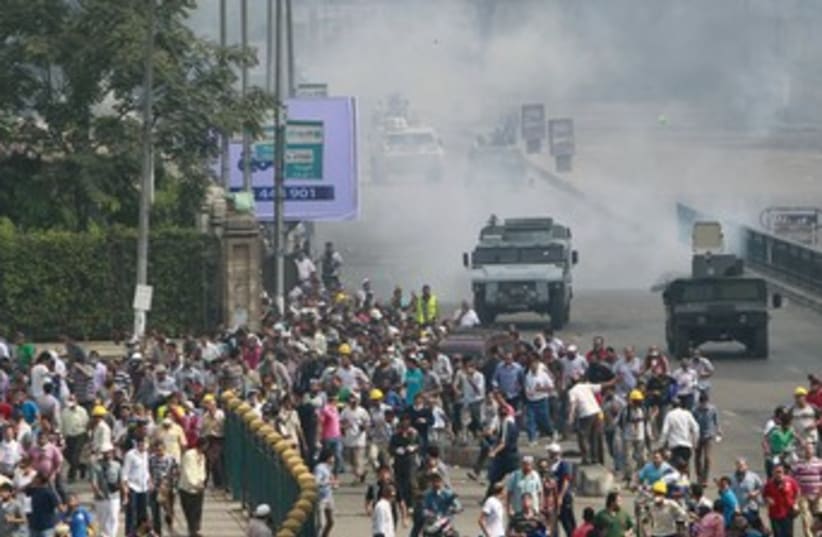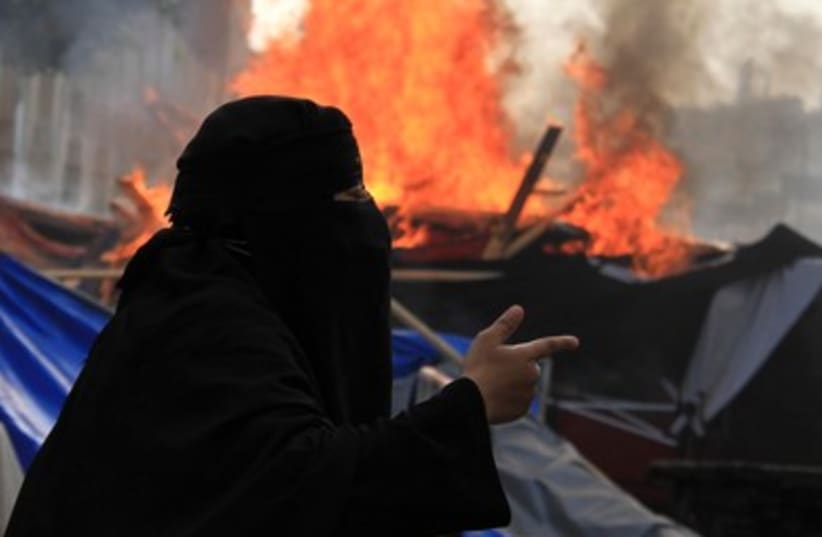
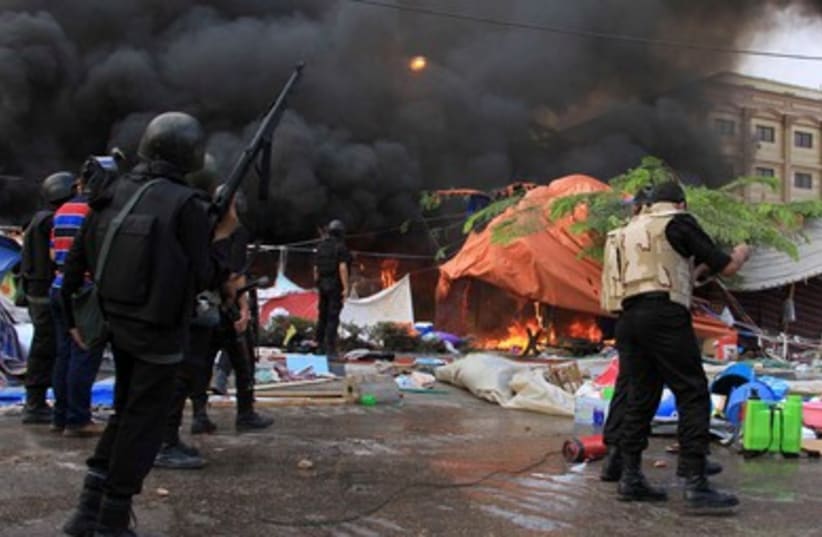
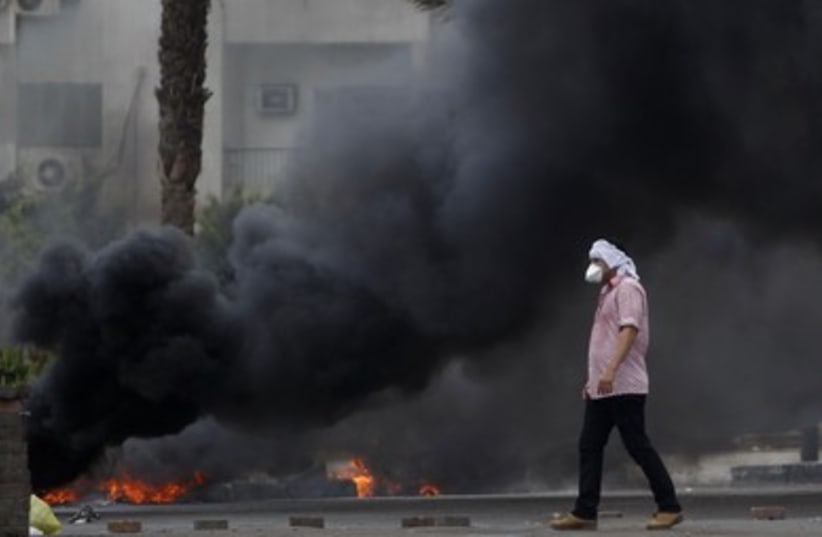
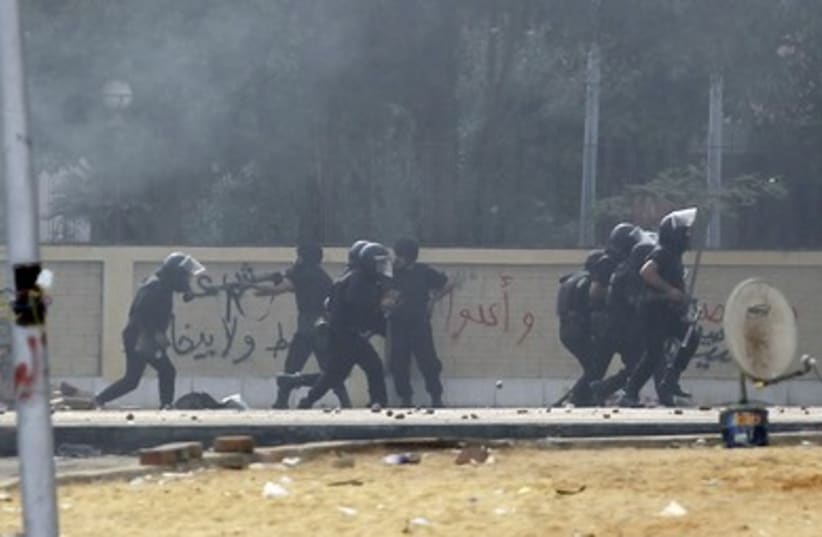
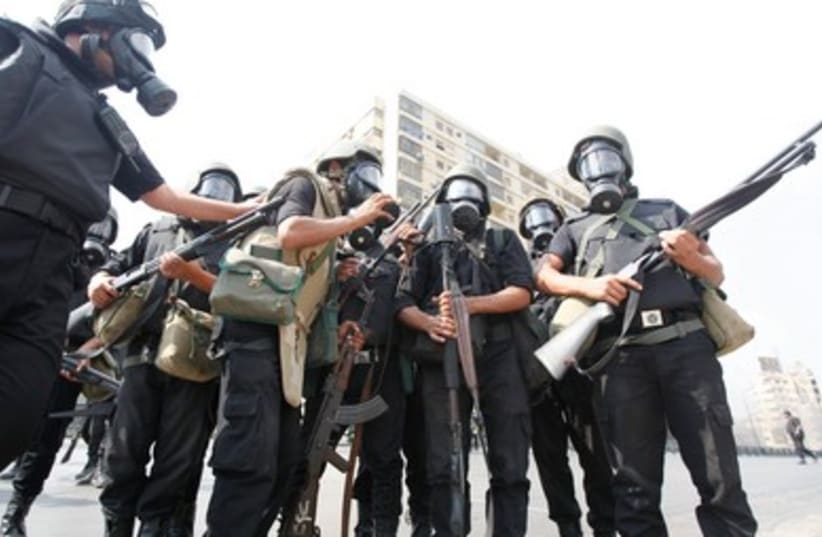
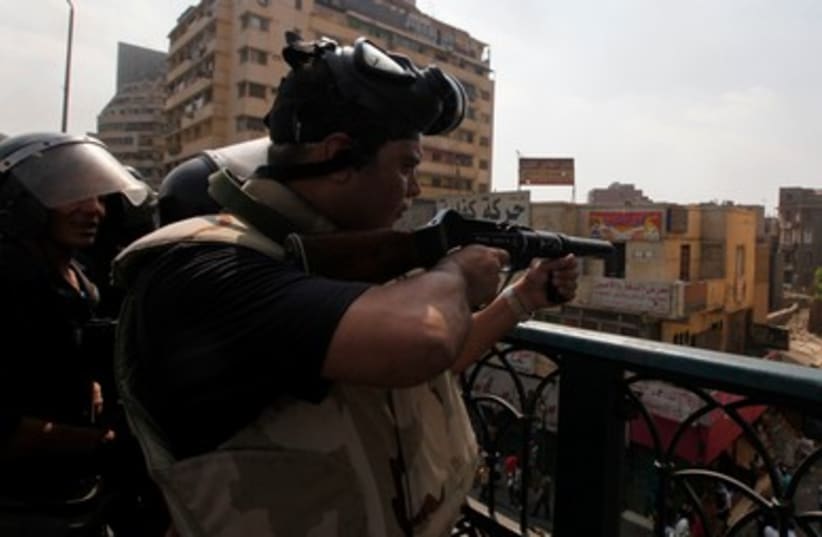
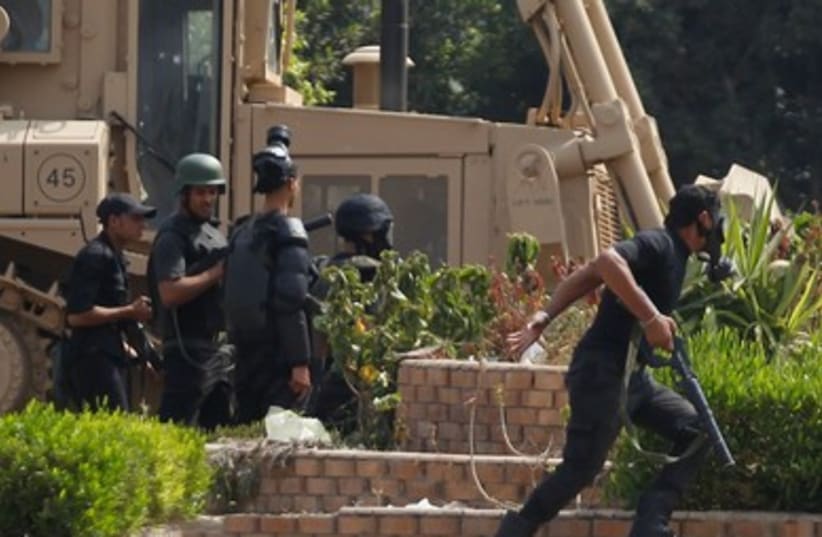
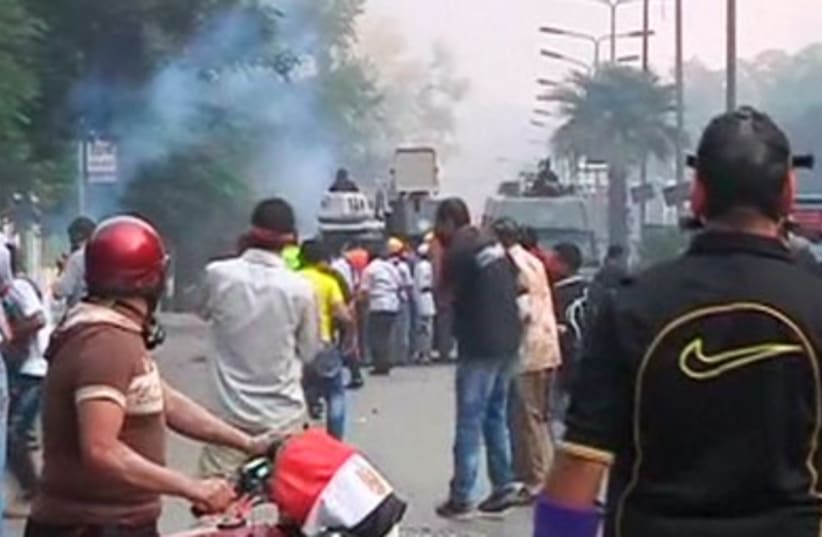
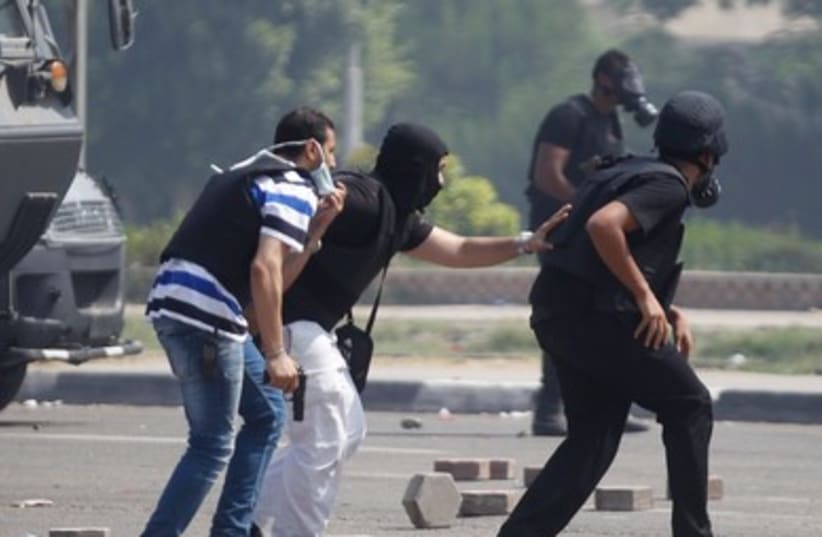
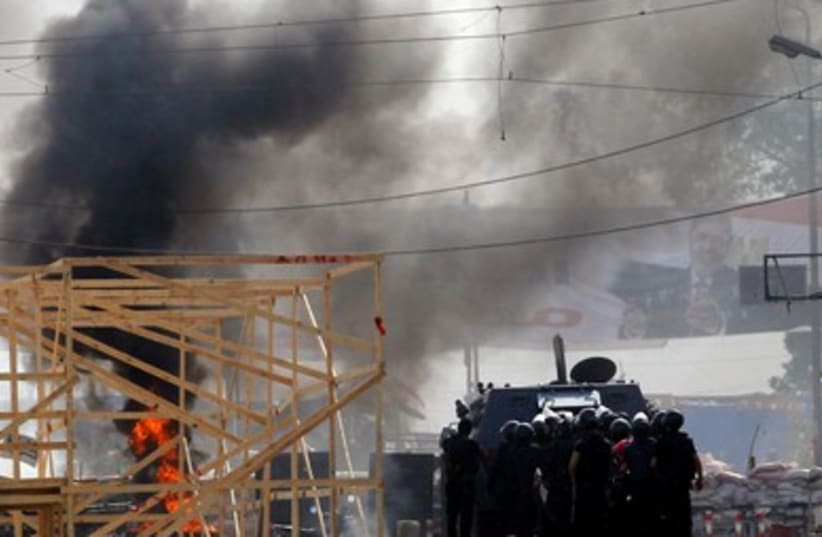
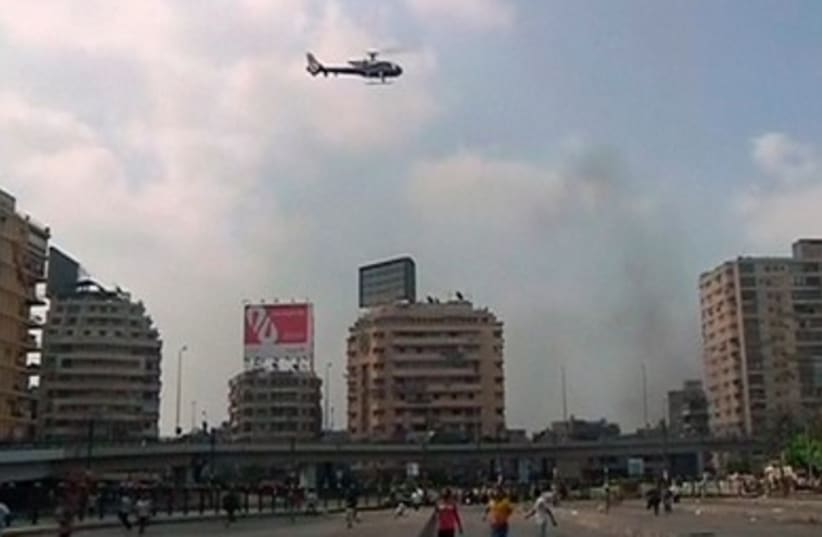
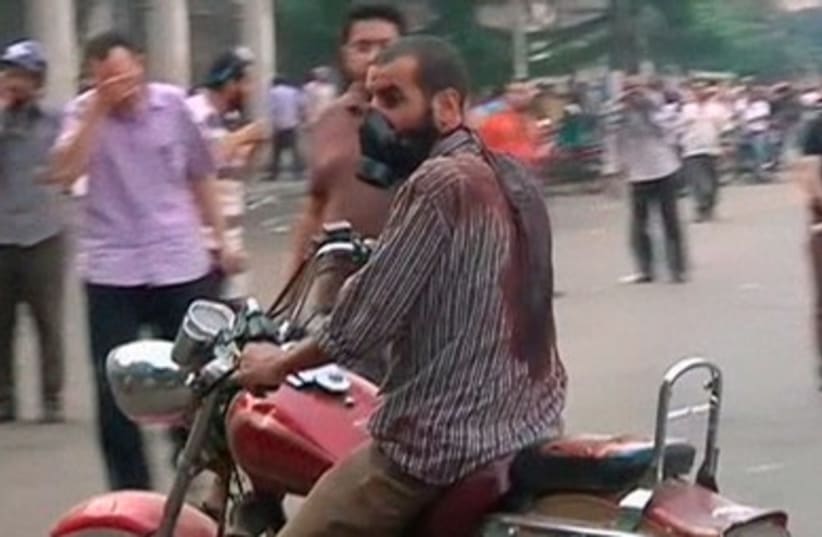
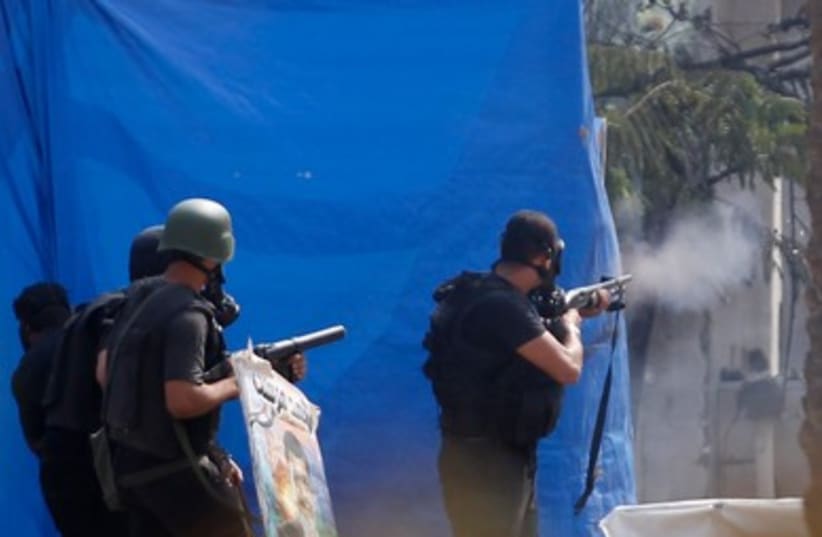
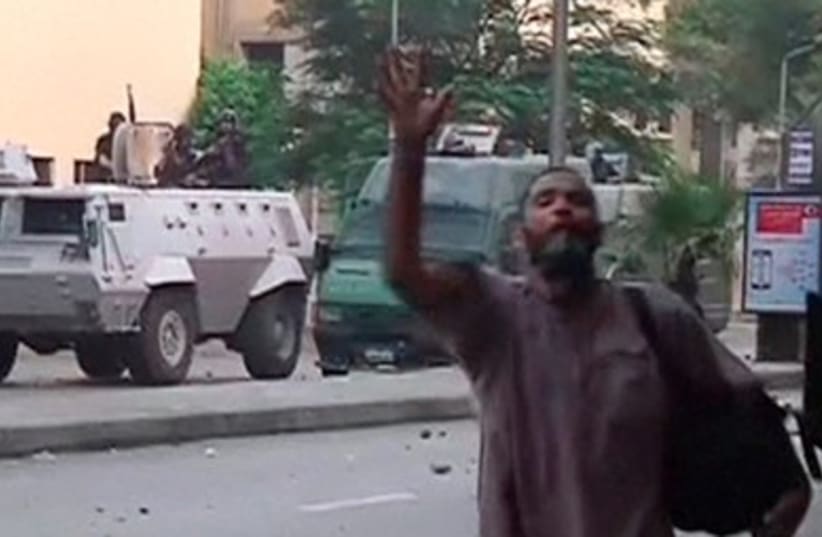

The latest round of bloodshed began when the army cleared protesters from Cairo’s two largest pro-Morsi encampments with lethal force, arresting all those who were armed. Top Brotherhood politicians were arrested as the crackdown unfolded.Muslim Brotherhood protesters vowed to disobey the military and continue their resistance in the name of ousted president Mohamed Morsi – who remains in custody after being forcibly removed from power on July 3 – leading to widespread clashes with authorities.As a result of the violence, the military announced a nationwide state of emergency, doing so for the first time since the fall of longtime former president Hosni Mubarak more than two years ago.The bloodshed also prompted Vice President Mohamed ElBaradei, the civilian face of the interim government, to resign on Wednesday. He spoke to US Secretary of State John Kerry by phone to inform the US of his decision.The air was thick with tear gas as dozens of Egyptians lay together dead, wounded or cowering in the heart of Cairo. Snipers could be seen on rooftops surrounding the demonstrations, according to reports.Escaping the violence in the Brotherhood’s two Cairo camps, protesters once again marched on the city’s 6th of October Bridge.While casualties were concentrated in the capital, at least 10 people were killed in Alexandria and 15 in Ismailia, on the western bank of the Suez Canal. Health Ministry officials reported that 41 people were killed in the Minya province.Authorities also stated that 43 police officers were killed in clashes on Wednesday.Morsi supporters attacked Coptic churches across the country, fueled by belief that the Christian community had allied itself with plotting military brass. Protests against the violence also broke out throughout the day in front of Egypt’s embassies in Khartoum, Ankara and elsewhere.Speaking from the State Department, Kerry said he had called Egypt’s foreign minister on Wednesday to condemn the military’s actions.“Today’s events are deplorable,” Kerry said. “It’s a serious blow to reconciliation.”A peaceful transition to civilian rule and an agreement between the army and a deposed and angry Muslim Brotherhood would be “much, much harder” to achieve after the day’s events, Kerry said, adding that the military held the “preponderance of power” in the conflict.“I believe they know full well what a constructive process would look like,” he said.“The state of emergency should end as soon as possible,” Kerry said.The government of Turkey called Wednesday’s events in Egypt a “massacre” and urged the UN Security Council and the Arab League to address the crisis.“What is required in Egypt is a genuine transition to a genuine democracy,” British Prime Minister David Cameron said.Iran’s Foreign Ministry called for a “democratic process” in Egypt and warned that the current violence “strengthens the likelihood of civil war in this great Islamic country.”In a statement from Martha’s Vineyard in Massachusetts, where US President Barack Obama is on vacation, White House deputy press secretary Josh Earnest “strongly” condemned the violence.“We have repeatedly called on the Egyptian military and security forces to show restraint,” Earnest said, adding that the Obama administration planned to hold the interim government in Cairo “accountable.”National Security Adviser Susan Rice briefed Obama on developments, Earnest said.The US government has not called July’s toppling of Morsi a military coup. Doing so would require Congress to freeze US aid to Egypt, and would compromise what little leverage the president has over that country’s military.David Schenker, director of the program on Arab politics at the Washington Institute for Near East Policy, said the death toll would likely rise as the army began dispatching emergency security countrywide.“At the most basic level, the military considers its fight with the Brotherhood to be existential, and they’re willing to absorb a lot of censure to endure what they perceive to be a life-and-death struggle,” Schenker said. “It’s possible we’re seeing the beginning of a deterioration similar to 1990s Egypt.”At that time, Egypt experienced a spike in terrorism when an Islamist group, al- Gama’a al-Islamiyya, fought for the implementation of Shari’a law by targeting police, government officials, civilians and tourists.The Muslim Brotherhood accused the military of firing on civilians on Wednesday and drew a line in the sand, saying it would not relent until Morsi was reinstalled as president. The interim government denied these claims and again promised a smooth transition to civilian rule.European Union foreign policy chief Catherine Ashton said she was following the situation with great concern.“Confrontation and violence is not the way forward to resolve key political issues.I deplore the loss of lives, injuries and destruction in Cairo and other places in Egypt. I call on the security forces to exercise utmost restraint and on all Egyptian citizens to avoid further provocations and escalation,” she said.The office of United Nations Secretary-General Ban Ki-moon also put out a statement calling for restraint.“While the UN is still gathering precise information about today’s events, it appears that hundreds of people were killed or wounded in clashes between security forces and demonstrators,” the statement said.Ban also condemned the violence “in the strongest terms.”“While recognizing that political clocks do not run backwards,” the statement continues, “the secretary-general also believes firmly that violence and incitement from any side are not the answers to the challenges Egypt faces.”
